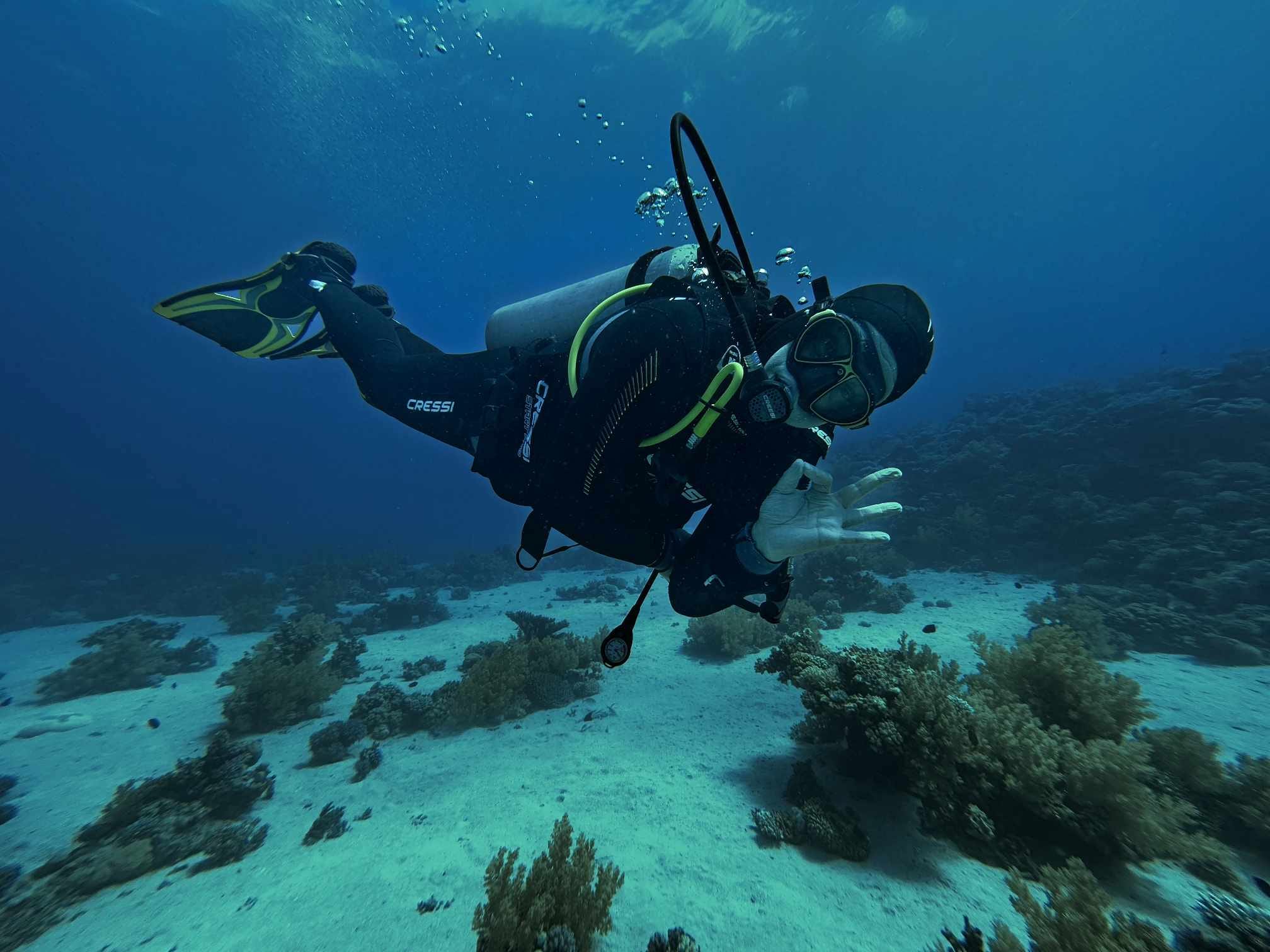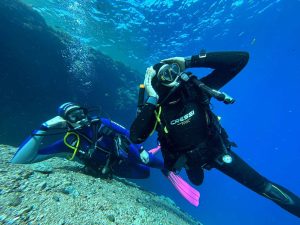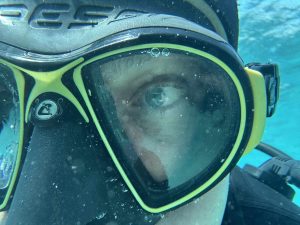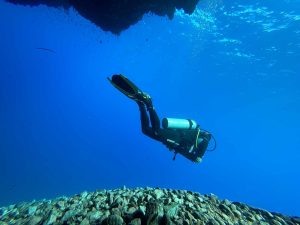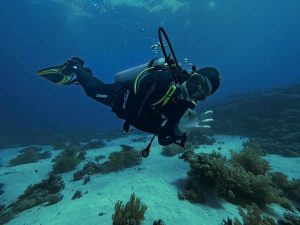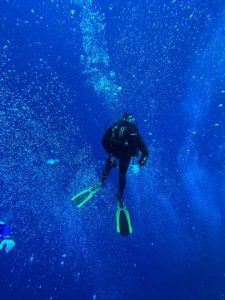This is the advice of diving instructor, diving expert Valters Preimans on the topic - "In the call of natural needs, or what is the correct urination technique for divers".
With the sun high on the horizon and the warm sea with the captivating depths of the ocean, divers are invited to immerse themselves in the fascinating environment of the underwater world. However, among the wonders of the underwater world, one common but essential question often arises: what should a diver do when nature calls while underwater?
In the further research of the topic, we delve into the medical aspects of diving during diving, supplemented by the insights of an experienced diving expert, diving instructor, master Valters Preimanis.
Table of Contents
Physiology of urination under water
Understanding the physiology of urination is very important for divers. The urge to urinate arises from the body's need to eliminate excess fluid and waste. In the Earth world, this process is simple. Beneath the waves, however, the dynamic is changing.
Immersion in water causes a physiological response known as immersion diuresis, where the body increases urine production. The ambient water pressure combined with the cool temperature stimulates the kidneys to work more efficiently. Although this may increase the need to urinate while diving, it is important to consider the health and safety of the diver.
Medical implications and considerations for scuba diving
Diving involves precise control of buoyancy, and urine output can affect this delicate balance. Improper release of urine can cause buoyancy problems and thus compromise underwater safety. In addition, urine contains salts and other substances that can irritate the skin and eyes when concentrated. For these reasons, it is imperative that divers follow responsible practices when addressing nature's calls below the surface.
Diving instructor Valters Preimanis emphasizes the importance of planning. “Being aware of your body and its needs is part of responsible diving. Try to empty your bladder before diving to reduce the chance of needing to pee during the dive,” he advises. “Proper hydration and a restroom break before entering the water are the foundation for a more comfortable and safe diving experience.”
Instructions for divers before diving
Preparation before diving: urinate before preparing to dive to reduce the chance of having to relieve yourself underwater.
Stay hydrated: Keep your body properly hydrated before and during the dive, but be sure to drink plenty of fluids to avoid overstimulating urine production.
Choose the right equipment: ensure that your wetsuit or dry suit has adequate relief to facilitate discreet and responsible urination when necessary.
Buoyancy control: if the need arises during the dive, be careful when adjusting the buoyancy. Small, controlled releases are recommended to avoid sudden changes during takeoff or landing.
Environmental considerations: be aware of marine life and other divers. Choose a secluded location and keep a safe distance from coral reefs and sensitive ecosystems.
Conclusion on urinating in water
In the quiet depths of the sea, mastering the art of urination is as important as mastering buoyancy and navigation. Responsible urinating practices not only promote diver comfort, but also adhere to safety and environmental principles. By integrating the wisdom of a seasoned expert, such as wisdom with medical knowledge, divers can embark on underwater adventures fully equipped with the knowledge to subtly navigate nature's calls.
Where to apply for diving training in Latvia?
🤿😀 If you are looking for advice or help on the healthy sport of scuba diving with or without balloons, give us a call PADI diving instructor t. 220-77-202 (WhatsApp 220-77-202) to find advice on proper human survival in water and freediving related training.
References on the topic
Richardson Drew, R. and Pollock, NW (2015). Human physiology in the aquatic environment. Comprehensive Physiology, 5(4), 1705-1750.
Edmonds, C., Lowry, C., & Pennefather, J. (2004). Scuba diving. BMJ, 329(7471), 145-149.

